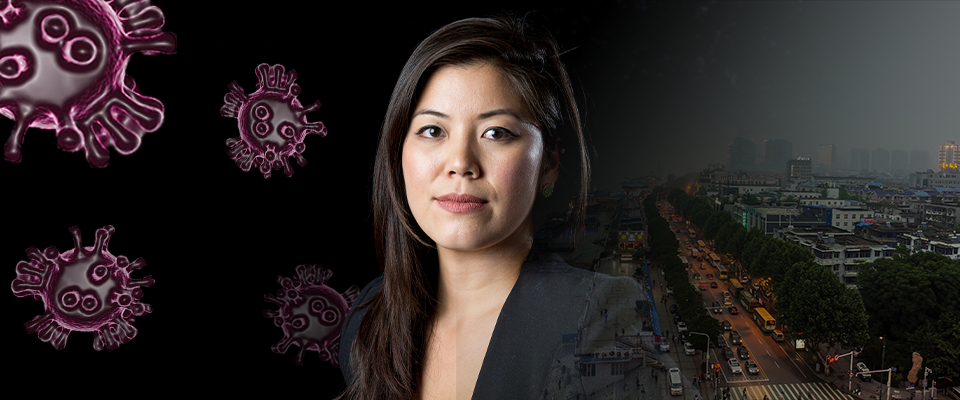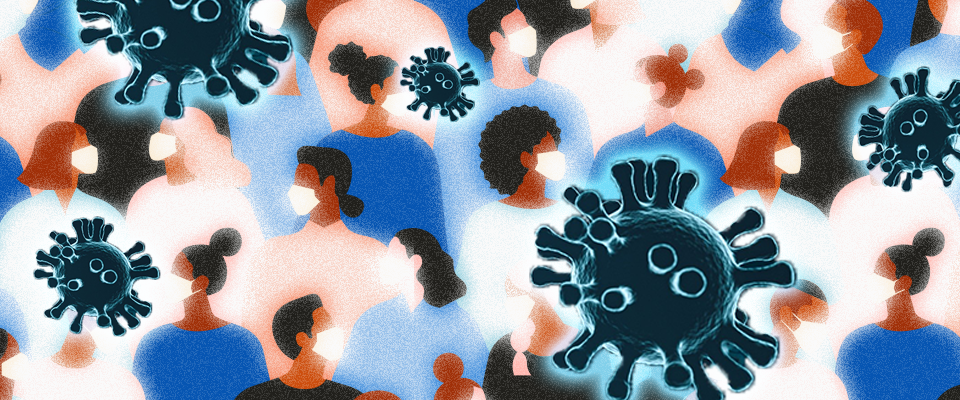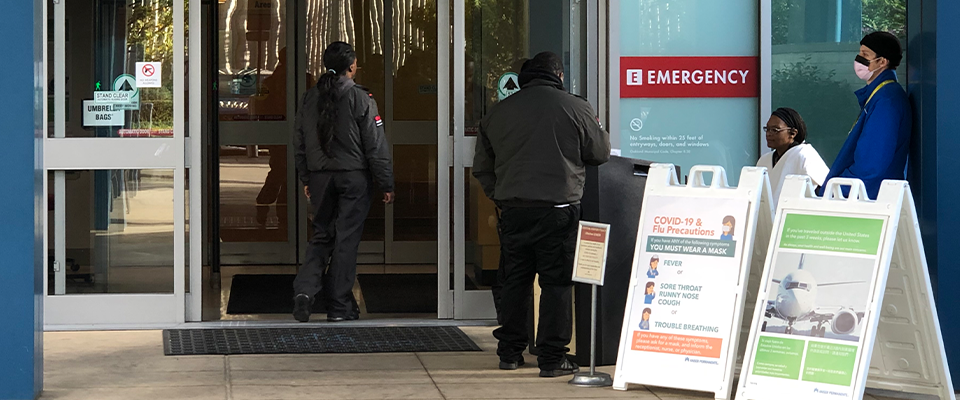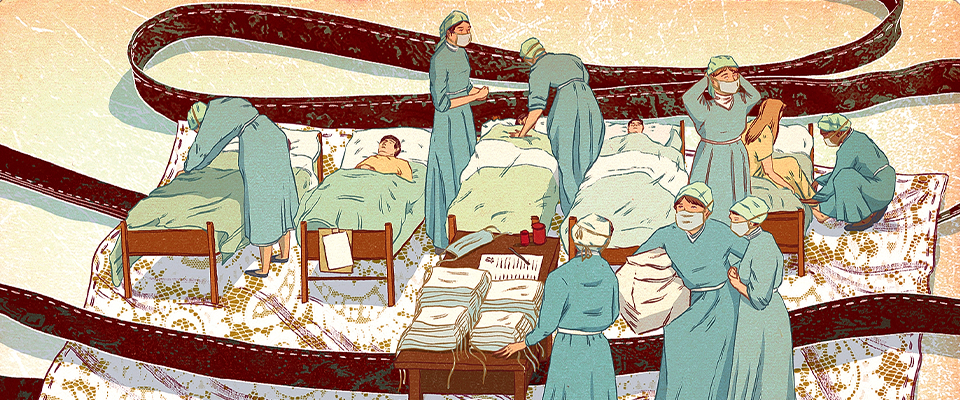In the last few months, Amy Qin’s reporting attire has included gloves, masks, and sometimes a hazmat suit. Stationed in China, the New York Times reporter has been on the frontlines, reporting on the coronavirus epidemic and its impact on the people of Wuhan and other Chinese cities.
Thirty-one-year-old Qin (pronounced Shin), has been based in Beijing for seven years and was dispatched to Wuhan, the epicenter of the coronavirus epidemic, in late January. A week after her arrival, she tweeted: “The mood among locals: anxiety, flashes of anger & frustration, and extreme boredom.” Qin, who completed her bachelor’s degree in political science and development studies at UC Berkeley, has been the lead writer on stories out of China’s capital as well as Wuhan, including: “China May Be Beating the Coronavirus, at a Painful Cost,” and “Her Grandmother Got the Coronavirus, Then So Did the Whole Family.”
During a brief return to the U.S. from Wuhan—she caught the last flight out—Qin was quarantined for two weeks at the Marine air station in San Diego. Her stay wasn’t nearly as arduous as others have endured. She had a suite, was allowed to mingle with the other evacuees, and rather than putting up with the quarantine menu she did what any connected Millennial might do: she ordered sandwiches, salads, and microwavable entrees from Amazon Prime.
Qin spoke with California magazine contributor Bill Snyder via FaceTime from her home in Beijing. about life in Wuhan during and after the outbreak and quarantine. This conversation has been edited for length and clarity.
Are you worried about your health? And what are you doing to avoid infection?
Amy Qin: Yes. I was nervous. In fact, when I was first sent to Wuhan I packed two suitcases of gear—face masks, gloves, sanitizer, and even a hazmat suit. But I didn’t remember to even pack my pajamas. [My colleagues and I] were very careful. We’d eat a big meal in the morning so we wouldn’t have to eat later and risk taking off our masks and touching our faces. We sanitized everything when we returned to our hotel room.
Wuhan is the epicenter of the epidemic. What’s life like there? What’s the mood of the city?
AQ: Post-apocalyptic is a good description. Wuhan is very large—about 11 million people—and like most Chinese cities it is usually very busy, but while we were there, streets were largely deserted, many stores and shops were closed. It was eerie.
How do ordinary Chinese react to you? How did you meet them?
AQ: We found that ordinary Chinese were quite willing to talk with us. Many of them were somewhat angry and wanted to express it. Since I look Chinese, people were more comfortable with me, but there’s always some hesitation when talking with an American journalist. We spoke to people on the streets, and in hospitals. We called people who had posted for help on social media.
How did people buy necessities such as food and medicine?
AQ: Grocery stores were ordered to stay open. People ran out of a lot of things but not food. Later in the crisis, the government realized it was not a good idea to have people walking around [and the city was locked down]. That put the burden on neighborhood committees that shopped and brought food to people.
People were stuck at home. What did they do?
AQ: People had access to the Internet and lots of time on their phones. A variety of content started coming out, things like funny dance videos, virtual hangouts. People improved their cooking repertoire. There were a lot of newly minted chefs [making] “quarantine cooking.” Schools were closed, but there was a lot of online learning. Some schools even had virtual flag-raising ceremonies.
But this can’t be all fun and games, right?
AQ: There was a dark side. We’re hearing reports of growing domestic violence. Financial pressures are mounting, and we have yet to see the longer-term mental health impacts.
Were people running out of money?
AQ: Some people could work at home. We heard that some people were getting half- or three-quarters pay. We have been hearing that some people in Hubei Province are having trouble making mortgage payments. The government was covering medical bills related to the coronavirus, but people with [other medical bills] stacking up are suffering.
Some of your stories have been rather critical of how the Chinese government is handling the crisis. In a recent story, you described the anger of people in Zuoling and how the containment campaign suffered from confusion and discord. Another story included criticism of President Xi. What was the reaction to those stories, and has it made your job more difficult?
AQ: We obviously try to be objective. I wouldn’t say our stories are critical as such, but, yes, we pointed out problems. In the beginning, there wasn’t pressure from the government. Later on, they were working harder to put their own spin on the crisis and what they were doing to solve it. But there haven’t been repercussions. [That changed in mid-March when growing U.S.-Chinese tensions resulted in China’s announcement to expel journalists from the Times and other news organizations.]
Tell me about the quarantine you experienced when you returned briefly to California.
AQ: We were quarantined at the Marine Corps Air Station in Miramar for two weeks. It was pleasant. [Unlike people on several cruise ships] we were able to hang out with other people in the quarantine, but I spent most of my time in my room just to be safe. One woman organized runway walks for exercise. People in the community pitched in, bringing us supplies; a group of Girl Scouts brought us cookies. I did make a few friends in quarantine though, and we have a big WeChat group with all the evacuees that is still quite active.





















